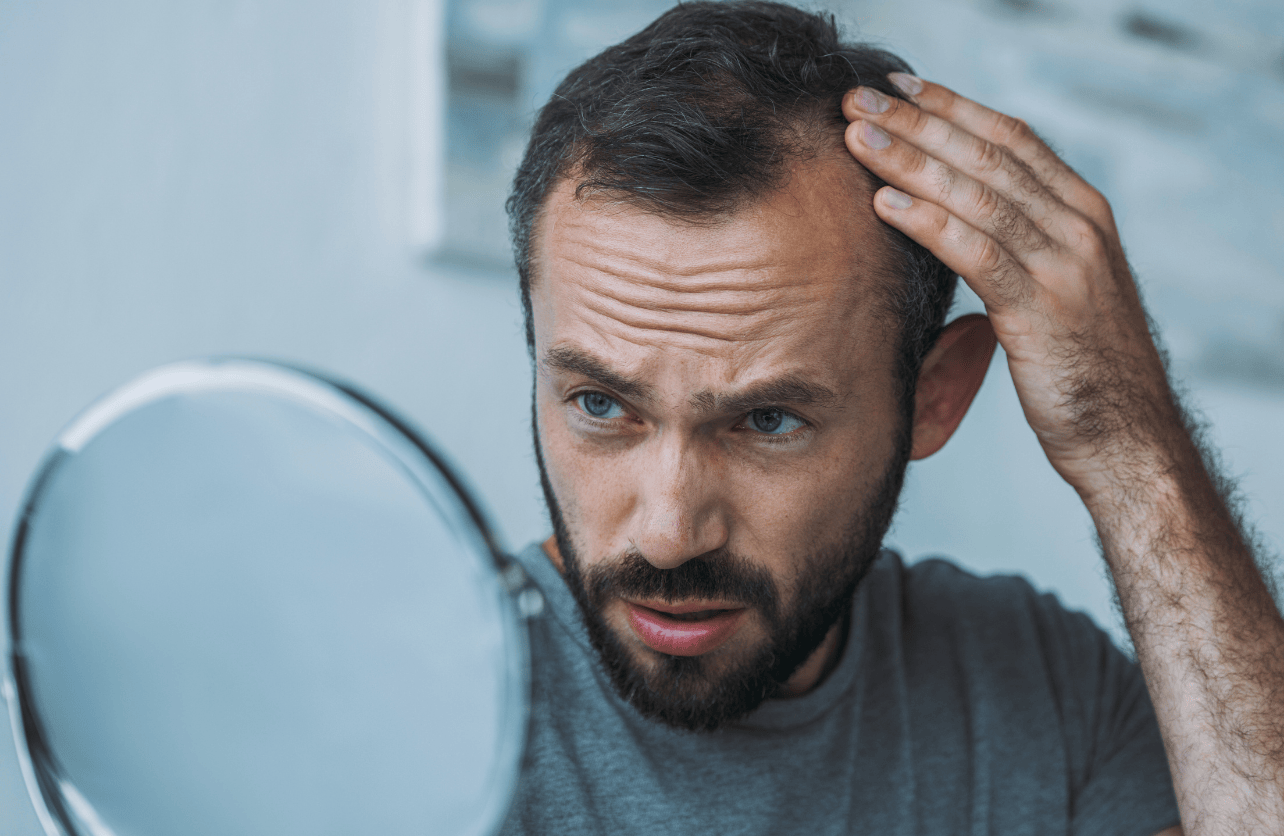Does Creatine Cause Hair Loss? What the Science Actually Says

Creatine has long held a reputation as one of the most effective and well-researched supplements for improving strength, power, and performance—especially during high-intensity training. But despite its many athletic benefits, one persistent rumor has followed it around for years: Does creatine cause hair loss?
If you’ve ever hesitated before scooping creatine into your shaker bottle because of concerns about your hairline, you’re not alone. This question comes up a lot, especially among younger male lifters. And while it’s always smart to be cautious about what you put in your body, the actual science behind this concern might be less alarming than you’ve been led to believe.
Where the Hair Loss Rumor Started
The buzz around creatine and hair loss traces back to a single small study published in 2009. In it, a group of college-aged rugby players took creatine monohydrate over a three-week period: seven days of loading at 25g/day, followed by two weeks of maintenance at 5g/day. Researchers weren’t studying hair loss directly—they were monitoring hormone levels.
They found a notable increase in dihydrotestosterone (DHT), a potent derivative of testosterone. During the creatine loading phase, DHT levels rose by over 50% and remained 40% higher than baseline during the maintenance phase. Since DHT is associated with androgenic alopecia (aka male-pattern baldness), many people took this as evidence that creatine might lead to hair loss.
But there’s an important caveat: no one in that study actually experienced hair loss. The researchers didn’t measure shedding, hair density, or hairline recession—just hormone levels.
What Has Research Shown Since?
Here’s the interesting part: in the 15 years since that study, no other peer-reviewed research has replicated those findings. Multiple follow-up studies examining creatine’s effects on testosterone, DHT, and other androgens have found no significant changes.
A 2021 systematic review looked at 12 different clinical trials involving creatine supplementation and found no consistent impact on testosterone or DHT levels. And to date, no study has shown a direct causal link between creatine use and actual hair loss in humans.
So why does the myth persist? Partly because DHT’s connection to hair loss is real—just not necessarily in the context of creatine. DHT plays a central role in genetically driven hair loss, particularly in men predisposed to male-pattern baldness. But the fact that creatine might influence DHT in a small, temporary way doesn’t mean it causes or accelerates balding in the average user.
Understanding Hair Loss Risk
Hair loss is a complex, multifactorial issue. Genetics are by far the biggest determinant. If you’re genetically predisposed to androgenic alopecia, your hair follicles are more sensitive to DHT, which gradually causes them to shrink over time. This leads to thinner hair and, eventually, permanent loss.
But factors like stress, diet, illness, medication, hormonal imbalances, and even rapid weight loss can all contribute to hair shedding too. Creatine, in contrast, doesn’t directly impact the hair follicle or interfere with the hair growth cycle in any known way. If you notice hair loss while using creatine, it’s worth considering other potential causes rather than assuming the supplement is to blame.
So, Should You Be Concerned?
If you’re already genetically predisposed to male-pattern baldness—and you’re starting to notice early signs of thinning—it’s understandable to want to play it safe. But based on current research, there’s no compelling evidence that creatine accelerates hair loss or has any long-term effect on androgen levels in a way that would trigger balding.
That said, everyone’s body reacts differently. If you’re truly concerned, speak with a dermatologist or healthcare provider who specializes in hair health. They can help you assess your risk based on your family history, current health, and lifestyle habits.
Summing Up
The idea that creatine causes hair loss is one of those persistent supplement myths that sounds believable but isn’t strongly backed by science. While one study suggested a temporary increase in DHT, it didn’t demonstrate actual hair loss—and no studies since have confirmed a link.
At the end of the day, creatine remains one of the safest and most effective supplements for improving physical performance. Unless you have a strong family history of hair loss and want to minimize every theoretical risk, there’s little reason to avoid it based on hair concerns alone.
Like any supplement, creatine works best when paired with proper nutrition, hydration, recovery, and consistency. And when it comes to hair health? Genetics, stress, and overall wellness are likely playing a much bigger role than your creatine scoop.
Building a Stronger You
Supplement Institute is the fruit of extensive online publishing experience, spanning the breadth of SEO strategies to the nuances of paid advertisements. Our journey, marked by significant achievements and learning moments, inspires our core mission: to empower our readers with an abundance of information. By sharing insights and key learnings, we aim to provide you with the knowledge needed to navigate the complex world of supplements, helping you make well-informed decisions for your health and well-being. Welcome to Supplement Institute, where information is your greatest supplement.